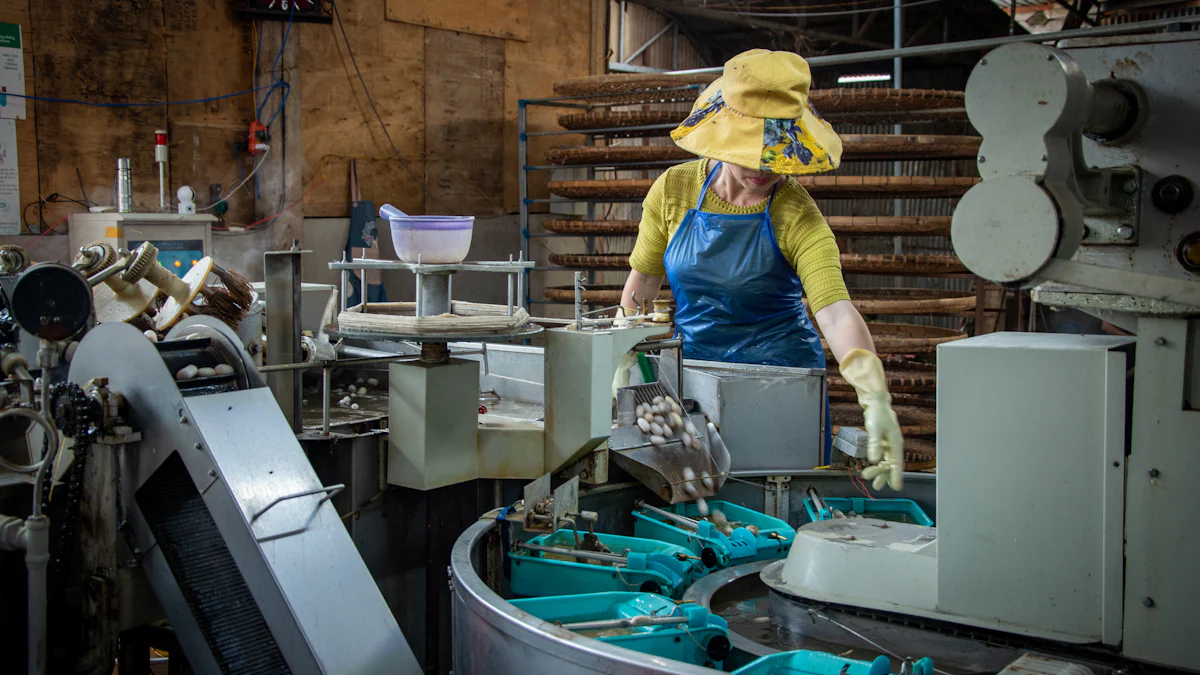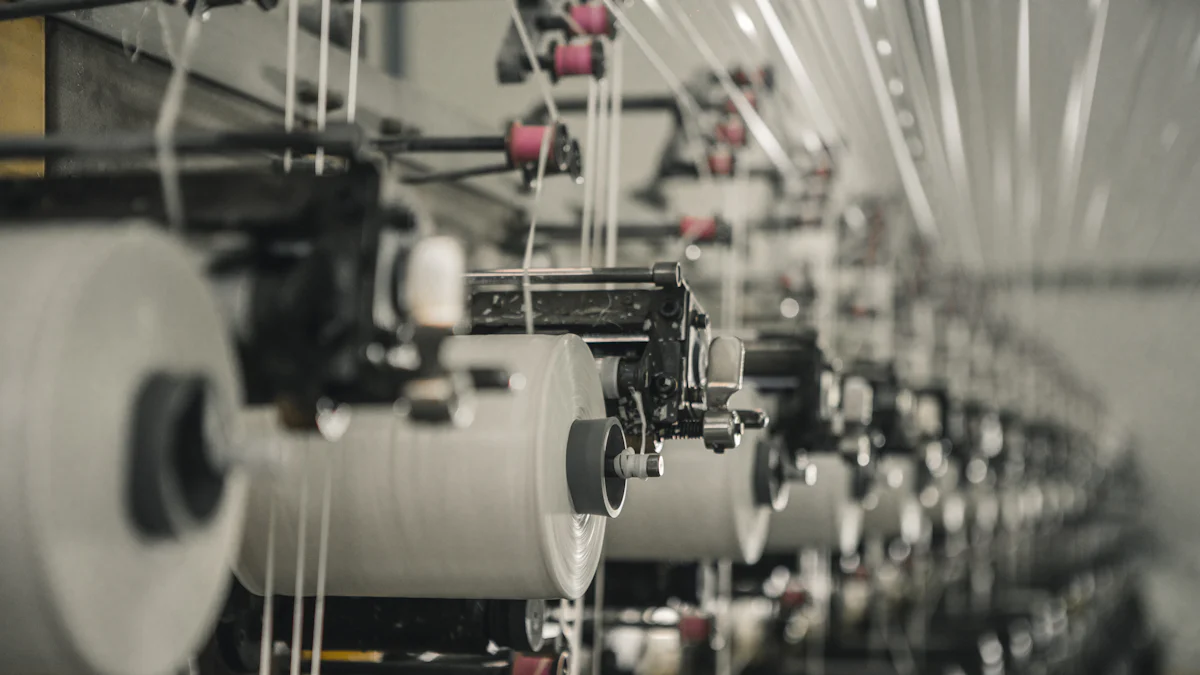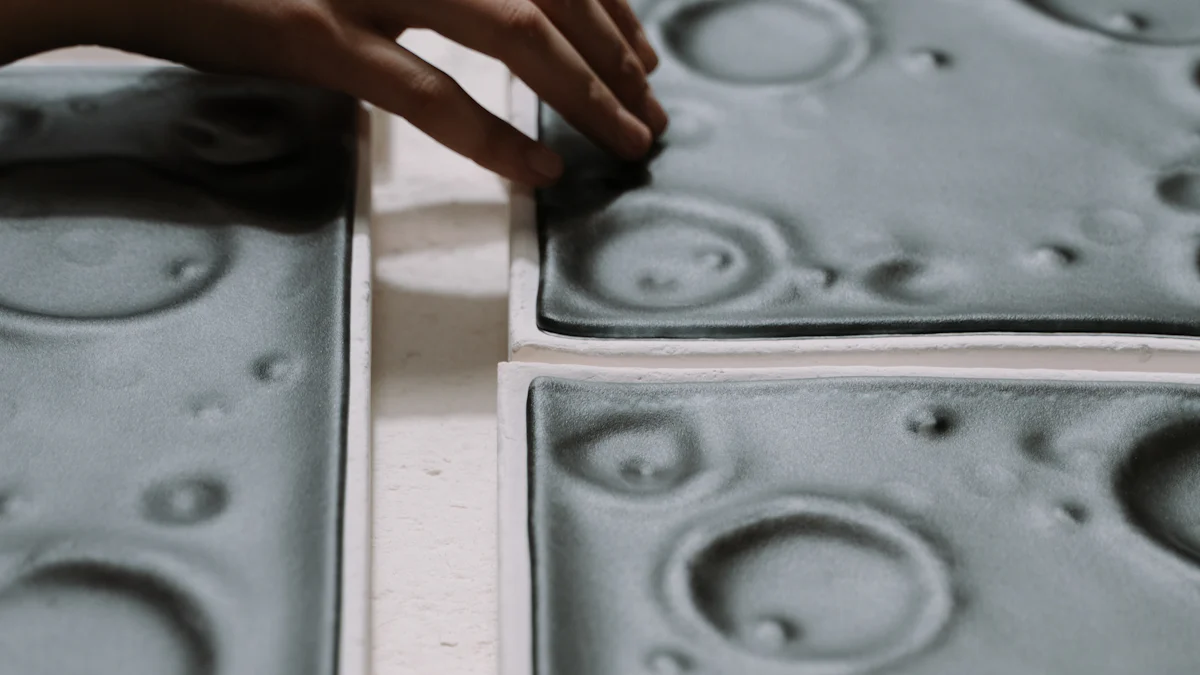
Selecting the ideal partner for plastic injection molding customization is crucial for the success of your project in 2025. With the industry projected to hit $346.87 billion by then, the demand for tailored solutions is on the rise. A dependable partner guarantees quality assurance, streamlined production, and cost efficiency. Whether you’re focusing on car parts, home appliance components, or medical&pharmaceutical devices, their specialized expertise can help you save both time and money.
Key Takeaways
- Pick a partner known for good work and success history.
- Check for certifications like ISO 9001 to ensure quality and safety.
- Choose a partner that handles everything to make production easier.
Experience and Expertise
Proven Track Record and Reputation
When choosing a plastic injection molding partner, I always look for companies with a strong reputation and a proven track record. A reliable partner demonstrates consistent success over time. For instance, companies like Chenshen Plastic have been in the industry for decades, showcasing their ability to deliver quality results. Here’s a quick comparison of some reputable companies:
This table highlights companies with extensive experience, which often translates to better project outcomes.
Industry Knowledge and Specialization
Specialized knowledge plays a critical role in plastic injection molding customization. I value partners who understand material selection, tooling design, and molded part finishes. For example:
- Material Selection: Choosing the right resin ensures the product meets performance demands.
- Tooling Design: Proper design impacts material flow and cavity size, improving product quality.
- Molded Part Finishes: Expertise in finishes helps achieve the desired look, whether shiny or matte.
Industry specialization also allows manufacturers to tailor solutions. For instance, Chenshen Plastic Plastics recommended polycarbonate for a client in the oil and gas sector. This material’s impact resistance and heat tolerance ensured the components met high standards.
Certifications and Standards Compliance
Certifications guarantee that a partner adheres to strict quality standards. I always check for certifications like ISO 9001, which ensures consistent quality management. Other certifications include:
- IATF 16949:2016: Focused on automotive quality management.
- ISO 13485:2016: Essential for medical device production.
- MedAccred Plastics Certification: Indicates excellence in medical manufacturing.
- ITAR Compliance: Necessary for military-related projects.
These certifications ensure quality, safety, and reliability. For example, ISO standards enhance customer satisfaction by promoting defect prevention and consistent inspection techniques.
Quality and Reliability

Consistency in Production Processes
Consistency in production processes is vital for achieving high-quality results in plastic injection molding. I’ve noticed that several challenges can disrupt this consistency, including:
- Machine Wear: Prolonged use under high stress often leads to wear and tear, reducing performance.
- Operator Error: Insufficient training or misunderstanding machine functions can cause downtime.
- Misinterpretation of Specifications: Poor communication between design and production teams can result in errors.
- Fluctuating Ambient Conditions: Temperature and humidity changes can affect material properties.
- Warping: Uneven cooling rates may lead to deformed parts.
To overcome these challenges, I always recommend working with partners who prioritize preventative maintenance, clear communication, and robust training programs.
Advanced Technology and Equipment
Advanced technology has revolutionized plastic injection molding. I’ve seen how robotics and automation speed up production cycles while reducing errors. For example, automated robotic unloaders improve efficiency by handling parts faster than humans. Hybrid molding machines also stand out by lowering energy costs and enhancing precision.
Smart factory integration is another game-changer. Real-time monitoring systems track parameters like temperature and injection pressure, ensuring consistent production. These systems allow immediate adjustments, minimizing waste and maximizing productivity. Simulation tools further optimize mold designs, leading to better-quality products.
Quality Assurance and Control Measures
Quality assurance ensures that every product meets the required standards. I always look for partners who implement thorough inspections and testing at every stage of production. Preventative maintenance plans for molds also play a critical role in reducing defects.
Utilizing advanced quality software enhances defect detection and compliance with specifications. Certifications like ISO 9001 and FDA approval further demonstrate a partner’s commitment to quality. These measures not only prevent costly rework but also protect a company’s reputation.
Range of Services
Comprehensive End-to-End Solutions
I always recommend choosing a partner that offers comprehensive end-to-end solutions. This approach simplifies the entire plastic injection molding process, from design to delivery. It ensures efficiency in producing large volumes of parts rapidly. Automated processes reduce labor costs, making the entire operation cost-effective. I’ve also seen how these solutions allow for the creation of intricate designs with high precision, which is essential for industries like automotive and medical devices.
Tip: A partner with end-to-end capabilities can handle everything, including prototyping, tooling, production, and assembly. This reduces the need to coordinate with multiple vendors, saving time and effort.
Material and Design Capabilities
Material and design capabilities are critical when evaluating a plastic injection molding partner. I always look for companies with extensive knowledge of thermoplastics like polypropylene, polycarbonate, and ABS. These materials offer unique properties, such as durability, flexibility, and heat resistance, which cater to different project needs.
Modern machinery also plays a significant role. Advanced equipment with precise temperature control and automation ensures production accuracy. I’ve found that partners with robust testing protocols and certifications, like ISO 9001, consistently deliver reliable results. To assess their expertise, I often request work samples and evaluate their ability to handle complex designs or processes like overmolding.
Scalability for Small and Large Projects
Scalability is another essential factor. A reliable partner should accommodate both small and large projects without compromising quality. For instance, injection molding supports quick production of thousands or even millions of identical parts. This makes it ideal for high-volume projects.
| Aspect | Description |
|---|---|
| Injection Speed | Enables quick production of thousands or millions of identical parts. |
| Cost Efficiency | Cost per unit decreases as production scales up, making it economical for large projects. |
| Design Flexibility | Supports intricate designs that may not be feasible with other methods. |
| Consistent Quality | Ensures each unit produced is identical, maintaining high standards across different project sizes. |
Scalable solutions also handle seasonal demand spikes or unexpected increases in orders. This flexibility ensures deadlines are met while maintaining consistent quality. I’ve seen how automation further enhances production speed, reducing errors and ensuring customer satisfaction.
Plastic Injection Molding Customization

Tailored Solutions for Unique Requirements
I’ve found that tailored solutions in plastic injection molding are essential for meeting unique project requirements. Many companies excel at customizing designs and engineering to match specific needs. They often collaborate closely with clients to translate specifications into practical designs. For example, I’ve seen manufacturers use advanced CAD software and prototyping tools to create custom parts for industries like automotive, aerospace, and medical devices.
Tailored solutions also address industry-specific challenges. Optimizing material selection ensures compatibility and reduces defects. Advanced moisture control techniques prevent issues like splay and bubbles, improving product quality. I’ve noticed that innovative mold venting solutions eliminate defects caused by trapped air, ensuring smooth production. These approaches guarantee high-quality results while maintaining efficiency.
Flexibility in Design and Adjustments
Flexibility in design plays a critical role in the success of plastic injection molding projects. I’ve observed how rapid prototyping allows for quick adjustments before mass production. This iterative process enables manufacturers to adapt to changing market demands and consumer preferences. For instance, maintaining product quality while incorporating new design elements can lower assembly costs and improve efficiency.
Flexibility also fosters innovation. Manufacturers can experiment with different designs and materials without compromising deadlines. This adaptability ensures that the final product meets both functional and aesthetic requirements.
Prototyping and Iterative Development
Prototyping and iterative development streamline the product development process. I’ve seen how 3D printing accelerates prototyping, reducing lead times and enabling more iterations. Physical prototypes can be ready within days, allowing for quick design modifications. Producing multiple prototypes simultaneously helps compare options and refine designs.
Injection molding itself is a cost-effective method for prototyping complex plastic products. Custom molds and limited runs of parts can be produced quickly using machinable materials. This approach reduces initial production costs and shortens the time to market. Iterative development ensures that the final product achieves the highest quality standards.
Customer Reviews and Testimonials
Importance of Client Feedback and Ratings
Client feedback and ratings play a critical role in evaluating a plastic injection molding partner. I always prioritize reading reviews to understand a company’s reliability and performance. These testimonials reveal how well a partner manages projects and whether they deliver on promises.
Tip: Choosing a supplier involves more than comparing estimates. Understanding their core competencies and ability to handle projects comprehensively is essential.
Reviews also highlight a company’s strengths and weaknesses. Positive feedback often reflects consistent quality and excellent customer service. Negative reviews, on the other hand, can expose recurring issues. This information helps me assess a partner’s credibility and track record before making a decision.
Evaluating Case Studies and Success Stories
Case studies and success stories provide valuable insights into a company’s capabilities. I look for examples that demonstrate reliable delivery, competitive pricing, and product expertise. These elements show how well a partner meets deadlines, maintains quality, and optimizes costs.
| Key Benefit | Explanation |
|---|---|
| Ability to Meet Deadlines | Case studies show how well the company has performed in past projects, indicating reliability. |
| Quality Maintenance | Evidence of maintaining quality standards through previous projects is crucial for partnership. |
| Industry Experience | Familiarity with compliance requirements and challenges ensures innovative solutions. |
| Proven Track Record | Testimonials and case studies provide insights into the company’s ability to meet project demands. |
For example, I’ve seen case studies where companies achieved over 30% revenue growth by delivering high-quality products on time. These examples build trust and confidence in their services.
Identifying Red Flags in Reviews
While reading reviews, I stay alert for red flags. Poor quality control, lack of transparency, and uncontrolled pricing often indicate unreliable partners. These issues can lead to delays, increased costs, and subpar results. Identifying these warning signs early helps me avoid potential problems and choose a trustworthy partner.
Note: Always cross-check reviews from multiple sources to ensure accuracy and fairness.
Choosing the right plastic injection molding partner involves several critical factors:
- A skilled design team ensures efficient production.
- Production capacity must align with your project needs.
- Comprehensive services simplify processes.
- Quality assurance guarantees consistent results.
- Time management prevents delays.
Thorough research helps identify partners with proven expertise, robust capabilities, and sustainable practices. A reliable partner fosters long-term success through cost-effectiveness, streamlined production, and innovation. Prioritize these elements to ensure your project achieves its goals.
Tip: Always select a partner who aligns with your unique requirements and future growth plans.
FAQ
What industries benefit most from plastic injection molding?
Plastic injection molding serves industries like automotive, medical, electronics, and consumer goods. I’ve seen it excel in producing durable, precise, and cost-effective components for these sectors.
How do I evaluate a partner’s production capacity?
I recommend asking about their machinery, workforce, and past project volumes. Reviewing case studies or visiting their facility can provide insights into their capabilities.
Why is prototyping important in injection molding?
Prototyping helps refine designs and identify flaws before mass production. I’ve found it saves time, reduces costs, and ensures the final product meets expectations.
Post time: Jan-10-2025

